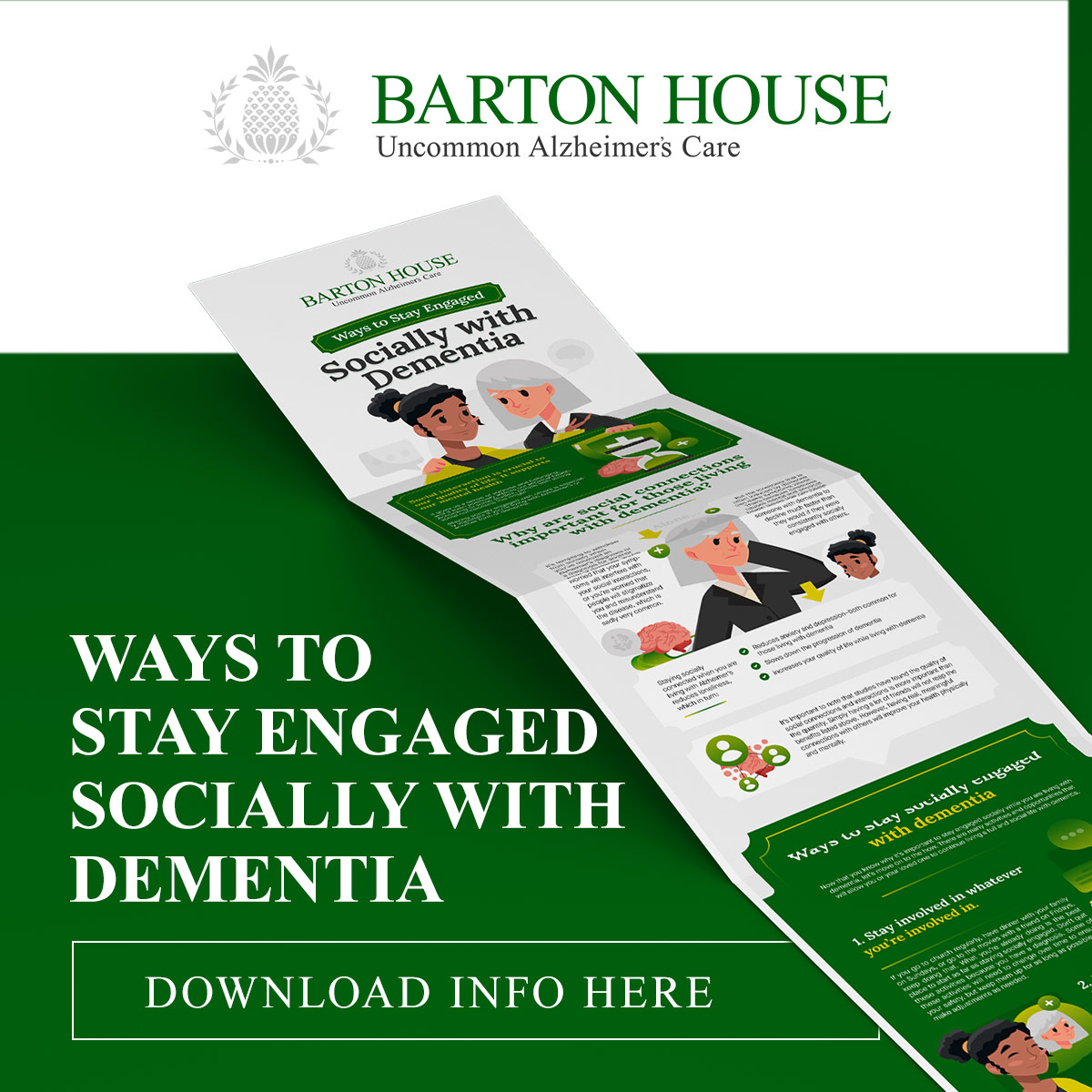Is Dementia a Mental Illness?

Is dementia a mental illness?
Awareness of dementia, Alzheimer’s and mental illness has increased greatly in the last decade. For illnesses that often carry a stigma with the general public, this is good news. More people are being informed about what these diseases are and aren’t and how to better care for themselves and those around them.
However, with this increase in awareness comes confusion. If dementia is an illness that affects the brain, is it a mental illness? Dementia and certain mental illnesses seem to have overlapping symptoms like social withdrawal, confusion and hallucinations. Does that mean dementia falls under the category of mental illness?
It makes sense that many people associate mental illness with dementia and while, no, dementia is not a mental illness, there is a strong connection between the two.
Share this Infographic Image On Your Site
<p><strong>Please include attribution to https://barton-house.com/ with this graphic.</strong><br><br><a href="https://barton-house.com/ways-to-stay-engaged-socially-with-dementia/"><img src="https://barton-house.com/wp-content/uploads/2022/11/barton_house_infographic_Ways_to_Stay-Engage_socially_with_dementia.jpg" alt="Ways to Stay Engaged Socially with Dementia" width="461px"></a></p>What is the difference between mental illness and Alzheimer’s?
Alzheimer’s is the most common type of dementia. (Dementia is officially defined as a group of symptoms, not a disease in and of itself.) The disease affects nearly 6 million Americans—most over the age of 65. While there are many types of dementia, for the purpose of this article, we will discuss the difference between Alzheimer’s and mental illness.
Mental illness
According to the American Psychiatric Association (APA), “Mental illnesses are health conditions involving changes in emotion, thinking or behavior (or a combination of these). Mental illnesses can be associated with distress and/or problems functioning in social, work or family activities.”
Mental illness diagnoses include mood disorders such as depression and bipolar disorder, chronic anxiety, substance abuse disorder and personality disorders such as schizophrenia. These diseases are not fatal—though they can lead to fatal behaviors—and most can be managed or improved with a combination of medication, therapy, a healthy lifestyle and relational support.
Anyone can be affected by a mental illness no matter their age. About one in five Americans has been diagnosed with some form of mental illness. This prevalence means that most of us have been affected by mental illness, whether you’ve been diagnosed with one yourself or know someone who has.
Mental illnesses can be caused by chemical or physical changes in the brain and if prolonged without intervention, they can cause further damage to the brain.
Alzheimer’s disease
Alzheimer’s disease is a degenerative brain disorder. Symptoms of Alzheimer’s include memory loss, confusion, disorientation, difficulty with speech and language and irritability. While the exact cause of Alzheimer’s is still unknown, researchers have been able to pinpoint tangled proteins in the brain as a possible cause of the disease.
Alzheimer’s over time causes the brain to shrink. The disease is ultimately fatal and there is no cure, though there are medications that help with symptoms and some breakthrough medications that may help slow the progression of the disease.
Those who are living with Alzheimer’s will need assistance with activities of daily living such as eating and going to the bathroom as the disease progresses and many will eventually require 24/7 professional care.
Can dementia be mistaken for a mental illness?

A common symptom of dementia and Alzheimer’s disease is depression. This is likely due to the emotional toll of dealing with an Alzheimer’s diagnosis as well as changes in the brain.
In addition, some symptoms of depression and Alzheimer’s overlap such as social withdrawal, mood changes and irritability. Because of this, dementia can be mistaken for depression. As this study points out,
“Depression is a common psychiatric disorder in the general population. However, when present concomitantly with neurodegenerative disorders, its diagnosis becomes challenging. In many cases, patients remain undiagnosed and hence, untreated, worsening the prognosis of the neurodegenerative diseases and impairing the quality of life.”
A diagnosis from an expert such as a neurologist is essential to determine whether you or your loved one has depression, a neurodegenerative disease like Alzheimer’s or both. When these diagnoses are confused and left untreated, it can increase the severity of the disease.
How can you tell the difference between dementia and schizophrenia?

Schizophrenia and dementia can be easily confused due to overlapping symptoms, and while the diseases are very different in nature, a growing body of research has linked the two.
According to the APA, “Schizophrenia is a serious mental illness characterized by incoherent or illogical thoughts, bizarre behavior and speech, and delusions or hallucinations, such as hearing voices.” Schizophrenia is typically diagnosed at a much younger age than dementia, often before age 35.
“Schizophrenia is a serious mental illness characterized by incoherent or illogical thoughts, bizarre behavior and speech, and delusions or hallucinations, such as hearing voices.”
AMERICAN PSYCHOLOGICAL ASSOCIATION
Those who are living with more advanced Alzheimer’s or dementia may have a hard time communicating, making them seem incoherent to others. Some may also experience hallucinations, or they may mistake a relative for someone else, such as a deceased spouse. Because of this, someone with Alzheimer’s may display schizophrenic-like behaviors, but this does mean they have schizophrenia. They are simply dealing with severe cognitive decline due to their disease.
Like Alzheimer’s, schizophrenia is caused by changes in brain structure and chemicals. Because of this, those who are diagnosed with schizophrenia are at higher risk for developing dementia or Alzheimer’s in the future. This study found that those who have schizophrenia are twice as likely to develop dementia later in life.
While dementia and mental illness are linked, they are not the same.
One is a degenerative, fatal brain disorder.
The other is a health condition that causes changes to your emotions and behavior.
It’s important to know the difference so you can better identify symptoms in yourself and your loved ones and to help educate those around you, so we can continue to reduce the stigma associated with cognitive decline and mental illness.






